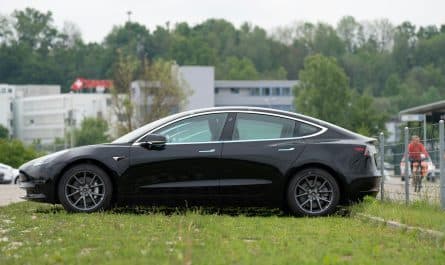THE hybrid cars have gained popularity in recent years due to their promise to reduce carbon emissions and improve fuel economy. But before you decide to purchase such a vehicle, it is essential to understand both the advantages and disadvantages associated with this technology. This article will guide you through the different aspects to help you make an informed choice.
The main advantages of hybrid cars
Economic consumption
One of the major selling points of hybrid cars is their economical fuel consumption. Thanks to the combination of an electric motor and a combustion engine, these vehicles can travel more kilometers on less fuel. This means not only substantial savings at the pump but also a significant reduction in polluting emissions.
For example, in urban areas where frequent stops are common, the electric motor often comes into play, reducing dependence on fossil fuel. Not only does this make daily commuting more economical, but it also contributes to cleaner driving.
Energy recovery during braking
Most hybrid-powered vehicles use a kinetic energy recovery system during braking, better known as regenerative braking. This mechanism allows the vehicle to convert the energy usually lost during braking and acceleration into energy usable by the electric motor. Thus, each stop helps recharge the battery, increasing the overall efficiency of the vehicle.
This technology therefore has a double advantage: extending the life of the battery while further improving the energy efficiency of your car. In fact, every moment spent in traffic becomes an opportunity to optimize driving.
Fewer polluting emissions
Reducing your carbon footprint is an important goal for many consumers today. THE hybrid cars offer a viable solution by emitting less CO2 and other harmful substances compared to conventional thermal models. In pure electric mode, these vehicles emit no direct emissions.
This feature is particularly beneficial in cities where air pollution is a major problem. Contributing to a cleaner environment while benefiting from economical fuel consumption – what more could you ask for?
Disadvantages to consider
Low battery life
Although they are technologically advanced, hybrid cars are not without their flaws. The first notable drawback is the low battery life. Unlike pure electric vehicles, hybrids generally have smaller batteries that require regular charging.
For those who travel long distances daily, this can pose a problem. Careful planning of journeys becomes necessary to avoid untimely interruptions due to a discharged battery. So if you’re used to long journeys without frequent stops, this is an important aspect to consider.
Expensive maintenance
The other major disadvantage concerns theexpensive maintenance hybrid cars. They combine two types of engines, which means potential maintenance for each of them. Electrical systems and batteries require specific and sometimes more expensive care than simple thermal engines.
Although the overall costs may be offset by the long-term fuel savings, the upfront and maintenance costs may be a barrier for some potential buyers. It is therefore essential to carefully assess your budgetary capacities before taking the plunge.
Higher initial cost
When purchased, a hybrid car generally has a higher price to that of classic thermal models. This cost difference is mainly due to the technological complexity and cost of the batteries. For a tight budget, this initial investment may seem prohibitive.
However, many states and municipalities offer financial incentives such as tax credits or grants to make these vehicles more affordable. It is always good to check out the programs available before making your final decision.
Factors to consider before making your choice
Your lifestyle and driving needs
Before you commit, think about how you use your car on a daily basis. If you mainly do urban trips with a lot of stops, a hybrid car could be ideal thanks to its energy recovery and fuel saving capabilities. On the other hand, if you travel long distances, low battery life could become a problem.
Identify whether your trips mainly include congested roads or expressways. Adapt your choice according to your routine and your specific needs to take full advantage of the advantages offered by a hybrid car.
Long-term costs
Even though a hybrid car may be more expensive to purchase, calculate the potential savings in the long term in terms of fuel and maintenance. Also evaluate maintenance schedules and guarantees offered by manufacturers. A smart purchase consists of taking into account the extended lifespan and the more expensive resale of the vehicle.
Also consider the financial incentives available in your area. Tax reductions, scrappage bonuses, all of this can considerably reduce the initial cost and make a hybrid car more accessible.
Choosing between a hybrid car and a conventional model will strongly depend on your specific needs and lifestyle. Benefits such as economical consumption, energy recovery and low emissions are undeniable and can justify the additional costs and expensive maintenance.
However, it is crucial to weigh the advantages such as extended battery life on one side and the disadvantages such as short battery life on the other. Take a complete assessment of your driving habits, assess long-term costs, and explore financial incentives to find the solution best suited to your needs.
- Benefits :
- Economic consumption
- Innovative energy recovery technology
- Reduction of polluting emissions
- Disadvantages:
- Low battery life
- Expensive maintenance
- Higher initial purchase price
Ultimately, opting for a hybrid car remains a personal decision based on a balance of advantages and disadvantages. With careful analysis and a good understanding of what this involves, you will be able to make an informed and appropriate choice for your future vehicle.








